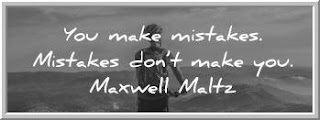Yes, it’s true that problems with our mindset can interfere with good trading. It’s equally true that bad trading can interfere with our mindset. In coming posts, I will highlight mistakes I see traders make and what we can do about them:
The first mistake I see traders make is confusing the idea being traded with the actual trade that is placed – Traders develop ideas about the markets or stocks they’re trading. Those ideas often reflect what is happening over time with growth and other fundamentals, price action and trends or breakouts, etc. For example, I might develop the idea that a data release is a game changer for the stock market and should lead to new highs in SPX. Once we develop an idea, we have to translate that idea into a specific trade. What will tell us that traders and investors are acting on this idea? What will give us favorable reward-to-risk in putting on a position to profit from the idea? Too often, traders will get stopped out of the trade and stop following the idea–only to see it play out subsequently. The trade is not the idea. A trade that doesn’t work doesn’t necessarily mean that the idea is invalid. It simply means that market participants, right here and now, aren’t acting on the idea. When we stop out of a trade, we need to review: Is my idea still valid?
If my idea was that we’re breaking out of a long-term range and should head meaningfully higher due to economic growth and positive earnings , but then a Federal Reserve action is announced that drives the market lower, it may well be the case that my idea is invalidated. We’re not breaking out of the range to the upside and an important catalyst is now threatening a downside break and perhaps economic weakness.
Conversely, if my idea was that we’re breaking out of a long-term range and should head meaningfully higher and I then buy the next move to the upper end of the range only to see the market move back into the range, my breakout trade is wrong and I may very well stop out, but nothing has invalidated my idea about growth and positive earnings. In such a case, I may retain the idea even as I jettison the trade and will ask myself what I need to see to re-enter a position. Perhaps next time, I’ll wait for an actual breakout to occur on increased volume and then I’ll join the price action for a momentum move higher.
The psychological mistake we can make when we stop out for a loss is that we can become frustrated and, out of that frustration, toss aside the idea we were considering as well as the trade. The wise trader looks at a losing trade as information. It might provide information about what we need to see to make the good idea a good trade; it might provide information that the idea isn’t so good after all.
Bad trading is sticking with ideas out of stubborness. Good trading is sticking with ideas when they have not been invalidated. This is why risk management is important. If we control our bet size, we give ourselves plenty of room to go back and express ideas in new ways after initial trades don’t work. Conversely, some ideas end up being incorrect. Knowing what will disconfirm your idea is just as important as knowing what will disconfirm your trade.
Further Reading:
.

